Tag Archive for 'fish stocks'
Earlier this month, I went to Brussels for a private screening of our film, The End of the Line, and debated the sad state of Europe’s fisheries with Joe Borg, the Commissioner for Maritime Affairs and Fisheries.
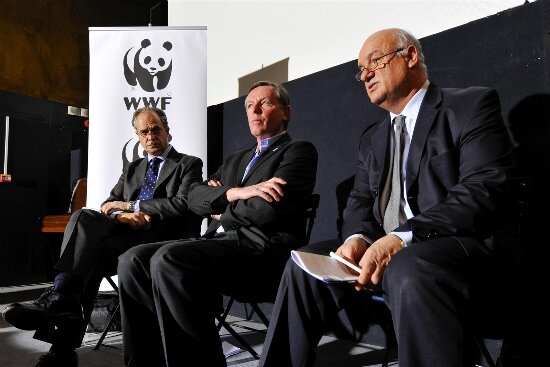
Charles Clover, Tony Long of WWF and Joe Borg, Commissioner for Maritime Affairs and Fisheries, debate Europe’s fisheries policy after a WWF screening of The End of the Line
The screening had been organised by WWF for members of the European Commission and country representatives ahead of the publication of the Green Paper on the reform of Europe’s fisheries policy last week.
I was surprised and impressed by two things. First, the openness and dedication with which Commissioner Borg trotted along and watched an 82-minute film and debated its conclusions, especially since these are even more damning about Europe’s management of its fish stocks than the Commission’s own Green Paper – which admits that 90 per cent of Europe’s fish stocks are overfished.
Continue reading ‘Nice reforms Mr Borg, but aren’t you missing something?’

Europe’s fishing policy has failed and nearly nine tenths of its fish stocks are overfished, the European Commission has admitted.
The Commission published a Green Paper proposing radical reforms of the Common Fisheries Policy (CFP) and began an open debate on the proposed measures which will last until the end of this year.
Among the proposals are:
- A ban on the “discarding” of under-sized and unmarketable fish at sea.
- Making the ecological sustainability of fish stocks the paramount objective of European policy, on which economic viability depends, rather than a factor to be weighed off against the survival of the fishing industry, as it is at present.
- Devolving decisions on the management of fisheries closer to the people they affect.
Continue reading ‘EU admits nine tenths of fish stocks are overfished’

With concern over bluefin tuna stocks growing among environmental groups, we round up the latest news at the start of the Mediterranean bluefin tuna fishing season.
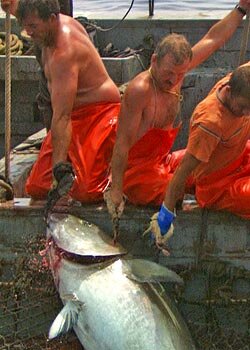
A large tuna is caught by fishermen
Reuters report that a new WWF report says overfishing is set to wipe out bluefin tuna in three years.
The news agency says: “Overfishing will wipe out the breeding population of Atlantic bluefin tuna, one of the ocean’s largest and fastest predators, in three years unless catches are dramatically reduced, conservation group WWF said.
“As European fishing fleets prepare to begin the two-month Mediterranean fishing season, WWF said its analysis showed the bluefin tuna that spawn - those aged four years and older - will have disappeared by 2012 at current rates.”
Sergi Tudela, head of fisheries at WWF Mediterranean, said: “For years people have been asking when the collapse of this fishery will happen, and now we have the answer.” Continue reading ‘Bluefin tuna fishing season starts in the Mediterranean’

What were thought of as certainties can fall apart in the light of new circumstances, new thinking.
For years we have been told that the Omega 3 fatty acids from oily fish such as salmon, tuna and mackerel are good for the heart and brain.
Now, some of the people who proved that the world’s fish catches were not rising but falling - a critical milestone in this century’s thinking - have produced a report that shows that the evidence for the beneficial effects of Omega 3s is somewhat less impressive than one might think.
The study actively challenges dietary advice that we actually should be eating more oily fish.
It says that people in the Northern hemisphere who eat a balanced diet may be getting enough Omega 3s anyway but people in the Southern hemisphere are having their essential proteins and fish oils stolen from them by diet faddism in the North.
Oily fish can actually be bad for overweight or unhealthy people with heart problems, it says.
Was the fad for Omega 3s perhaps just a marketing strategy worked up by the fishing industry? That’s going too far, but it certainly looks as this dietary obsession is something we should be looking at a whole lot more critically now we know that wild fish stocks are in trouble almost everywhere.
Policies can be skewed by vested interests - including our own perceived health interests.
In fact what the human race needs are balanced policies that promote healthy people and healthy wild fish populations, able to feed a human population that will rise by a third over the next half century.
That is what we should be planning for, together with ways of producing Omega 3 fatty acids from vegetables and algae, to take the pressure off fish.
In the meantime, we may actually need to eat less of certain fish - salmon and tuna for instance - rather than more as the dieticians have been calling for.

Scientists have published the first study that casts doubt on some of the health benefits of fish oils - and say that daily doses may actually increase the risk for people already suffering heart disease.
- Are dietary recommendations for the use of fish oils sustainable? - study from Canadian Medical Association Journal
- Charles Clover: Omega 3 from oily fish health benefits - the totem wobbles
-
Omega 3 fatty acids contained in oily fish such as salmon and tuna have long been hailed a “super food” which plays a key role in boosting our immune system, staving off heart attacks and cancer as well as increasing brain power.
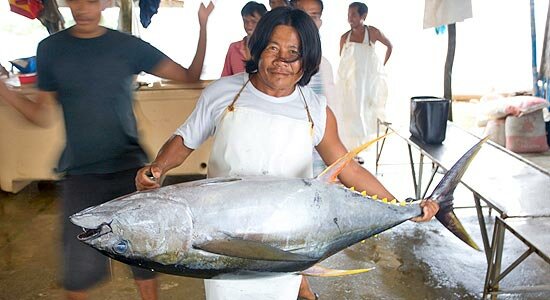
Tuna are rich in Omega 3 fatty acids, but are also under threat from overfishing
But the latest study finds little evidence to support the more extravagant claims and experts discovered that angina sufferers may put themselves at higher risk by taking fish oils.
The authors say that people in developed countries already have access to plenty of Omega 3 fatty acids in their diet, while people in poor countries were being deprived of essential oils and proteins by foreign fishing fleets. Continue reading ‘Omega 3 in oily fish may increase heart disease risk, study finds’

Nearly half of all fish produced for food is now farmed rather than caught in the wild, a new UN report reveals.
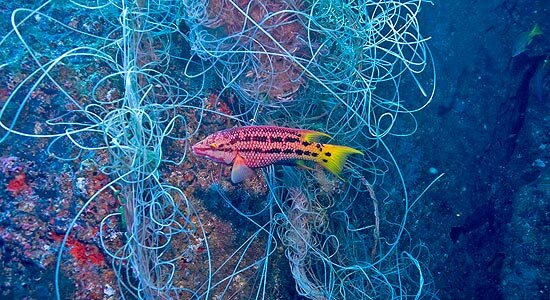
The biennial State of World Fisheries and Aquaculture (Sofia) report shows that stocks continue to be depleted by overfishing
The amount of fish produced by farming rose in the past two years while the number of wild fish stocks ranked as over-fished, depleted or fully exploited increased to 80 per cent of the world’s stocks.
The figures released in Rome by the United Nations Food and Agriculture Organisation (FAO) indicate that the amount of fish caught at sea has reached a plateau and may be in decline when suspected over-reporting by China is taken into account.
On the other hand, the amount of fish raised by aquaculture rose to 47 per cent of all produced for food. Continue reading ‘Farmed fish set to overtake wild caught fish for first time’

EU: sharks now need protection from overfishing from The Times
It could spell the end of rock salmon or huss being sold at the chip shop. The European Commission, presenting its first plan to limit all types of shark fishing, has said that it had to act to stop several types of shark being pushed towards extinction. Read more . . .
‘Google Ocean’ launched as extension of Google Earth to map the seabed from The Telegraph
Google Ocean, which will be included in the newest version of Google Earth, will allow users to swim around underwater volcanoes, watch videos about exotic marine life, read about nearby shipwrecks, contribute photos and watch unseen footage of historic ocean expeditions - all from the comfort of their homes. Read more . . .

The overfishing of the oceans is contributing to global warming, scientists have found.
They have discovered that the ocean’s ability to absorb pollution and purify the atmosphere is influenced by an unexpected factor – fish droppings.
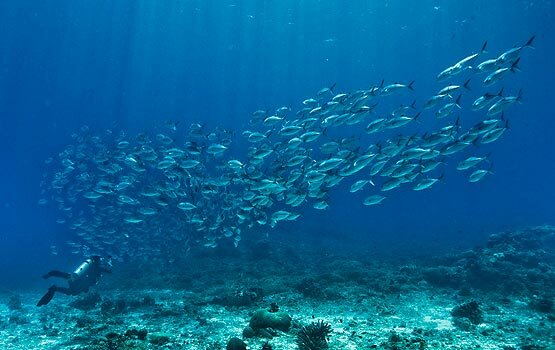
Alkaline chemicals such as calcium carbonate from fish poo can help balance this acid and help to take carbon dioxide out of the atmosphere
The increase in carbon dioxide in the atmosphere not only drives global warming, but also raises the amount of CO2 dissolved in ocean water, resulting in the sea becoming more acid and potentially a threat to sea life.
Alkaline chemicals such as calcium carbonate can help balance this acid and help to take carbon dioxide out of the atmosphere.
Scientists previously thought the main source for this balancing chemical was the shells of marine plankton, but they were puzzled by the unexpected quantities of carbonate in the top levels of the water.
Continue reading ‘Fish poo could save the planet’


![]()






